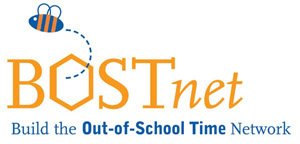
There is a great deal of discussion about the impact and quality of out-of-school programs - about as much as there is continued discussion on the definition of what out-of-school programs are - Early care? Elementary school? Teenager programs? Weekends? Summer programs? Are we stuck in a world of dead ideas and ways of seeing things that are out modded as Fortune Magazine's Matt Miller claims our nation as a whole is? Can we still provide quality service and keep the process of delivering that simple and effective?
Many providers in this year's BOSTnet Cohort of programs have discussed their frustration as to the definition of quality and the many and often competing tools and opinions out there vying for recognition. "I don't find much use in [an outside quality assessment tool]" one program leader claimed. "I do those [outside quality assessment tools] because I have to. Then, I create my own to learn what I need to know to improve my program." Are these tools focused on measuring dead ideas?
Many programs are asked to be held accountable to improving school-day performances either surrendering their unique offerings and substituting increased formal academics ("classroom" style learning) and linking their outcomes not to those that a unique developmental setting can provide but those improvements that may be very much out of their control - those performances of the classroom of such-and-such public school or schools depending on the composition of the program.
"We need to focus on what we do, and what we do well" seems to be the opinion of many leaders within the cohort yet upper level management often stifles innovation by holding on to older ideas of management and definitions of the field. Many emerging leaders as well as veterans see themselves needing high-level supports yet do not feel this clearly expressed need is being met. Again, older ideas of training and professional development continue to send experienced people back to the same old trainings they had the year before. How many "refreshers" are needed? "I am not sure why I am expected to attend a [professional development training] and expect to cover the same material that entry level staff are" one long-time program manager said. It is strange that in this field so many of the trainings are expected to meet the needs of all staff from the upper levels to the line-staff - not to mention the unrealistic expectations that a single trainer can "adapt" the materials to meet all these different needs in a single contact period.
Focusing on the needs of each level of staff and increasing the number of upper level opportunities may be one way that more experienced leadership can continue to grow and to shape their programs. This experienced leadership seems ready now, perhaps after years of developing the field and watching the out-of-school time community grow, to focus on what they do well, and reach to measure the sort of Point-of-Service results that are representative of their true contribution to healthy and resilient youth.
A viral video from NASA may shed some light on this situation since many issues of innovation and management cross boundaries and perhaps what is good for healthy science is good for healthy out-of-school time. Perhaps we need to throw out dead ideas and ways of framing what outcomes we are measuring and replace that with a focus on measuring the quality at the point of service and only those things we have direct control over in the multi-layered and ever complex lives of the children and youth we serve.




No comments:
Post a Comment